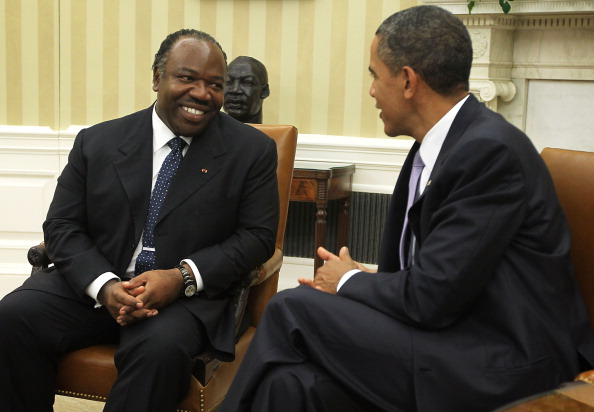
Ali Bongo Ondimba is the President of Gabon.
It has been a great honor to visit Washington, D.C., and represent the central African region at the Nuclear Security Summit. It has shown me once again that there is no longer such a thing as a purely national political problem.
Nuclear security, like almost any security and development issue, requires close collaboration from leaders across the world—not just from Western heads of state and Permanent U.N. Security Council members. For this reason, President Obama is right to invite leaders from across the world to debate these key issues, and I am proud to speak for our region at the crucial talks this week.
But security also comes from how countries deal with the challenges of globalization and its impact on their citizens. The speed of change in the world is causing much turbulence, leaving many behind and sparking political uncertainty in every community.
Our children’s generation will judge political leaders on how effectively we deal with this unprecedented change and ensure their countries and citizens are prepared for the rapidly converging world.
My home country of Gabon is rich in natural resources, but these are finite, and can steer an economy to focus too much on its primary sector without preparing for the future. As one of the few oil-producing economies committed to a zero carbon footprint, we know the vital role renewable energy—including safely produced uranium—plays in helping build a more secure future.
Yet we recognize also that our greatest asset is our people and global security rests on an inclusive society—citizens will only achieve their potential if they have equal chances.
In countries such as mine, great change is needed to realize this; there are several major barriers to achieving equal access to jobs, training, healthcare and education. There is also a systemic challenge, in the developed and developing world, around gender equality—specific measures are needed to fight gender-based violence and disproportionate health risks that women face.
And we must change our national cultures—moving away from systems of inherited privileges and towards a society built on equal chances. Quite simply, for too long, jobs and opportunities have too often been distributed to those with family or political connections.
None of these problems are unique to Gabon, but I hope we can be exceptional in how we address them.
I want to create the conditions where those with the best ideas are heard, encouraged and prosper. This is an issue that touches not only social justice, but our economic prosperity and national security as well. Poverty and exclusion understandably breed social discontent and hamper our future growth when the wrong people are employed, especially those appointed to important positions because of their connections not their merit.
This will require changes at many levels of the public and private sector—from investment in education and healthcare to cultural shifts in attitudes to employment. These changes will not always be popular with those who have benefited from the old system, but we cannot carry on as it is.
Returning to the United States’ capital this week, I am reminded how this is a city and nation built on the ideas of great men and women. Everywhere, streets, buildings and monuments are named after the people who made them the places they are—people who had the chance to have their voices heard.
Having the voices of all heard is critical for the development of my country and our global community. It is why I am participating in this crucial summit this week, and why Gabon will continue to drive forward South-to-South dialogue on issues including nuclear security, climate change and economic diversification.
Elections are due later this year in both the United States and my own country. There is a lot at stake for the people, and I am personally committed to ensuring that this will be the most free, fair and open election in Gabon’s history.
In our election, as in the U.S., the challenges of helping our people peacefully manage the changes we all need will be central. Debates among heads of states on issues of nuclear security can feel far removed from the bread-and-butter issues that swing elections but, in our interconnected world, the challenge of how to build a more secure and prosperous society is central to all that we must do together.
I believe that what we do in Gabon can be a model for Africa and the developing world, so the region fulfills its potential in a manner that benefits all its citizens.
The road ahead is long, and it will require the whole country to change together if we are to be successful. However, when we succeed, we will show the world that creating a society where everyone has equal chances is not a political fantasy, but our democratic obligation as leaders.
More Must-Reads from TIME
- Donald Trump Is TIME's 2024 Person of the Year
- Why We Chose Trump as Person of the Year
- Is Intermittent Fasting Good or Bad for You?
- The 100 Must-Read Books of 2024
- The 20 Best Christmas TV Episodes
- Column: If Optimism Feels Ridiculous Now, Try Hope
- The Future of Climate Action Is Trade Policy
- Merle Bombardieri Is Helping People Make the Baby Decision
Contact us at letters@time.com